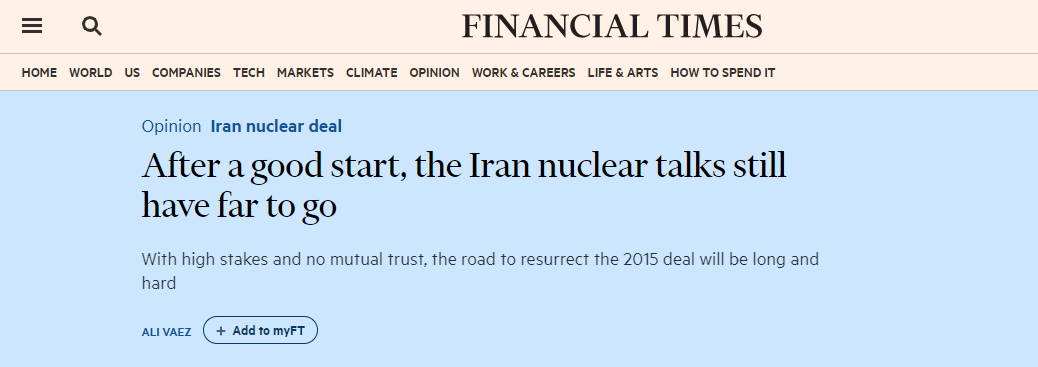
#OTD in 2018, President Trump announced that his administration was withdrawing the U.S. from the Iran nuclear deal.
It was a massive gamble. It was a failed gamble. But should be an instructive gamble. 🧵👇
It was a massive gamble. It was a failed gamble. But should be an instructive gamble. 🧵👇

2/ Trump had criticized the agreement on the campaign trail, but held off for over a year from pulling the plug, in part because senior members of his team believed the deal continued to serve U.S. non-proliferation interests. 
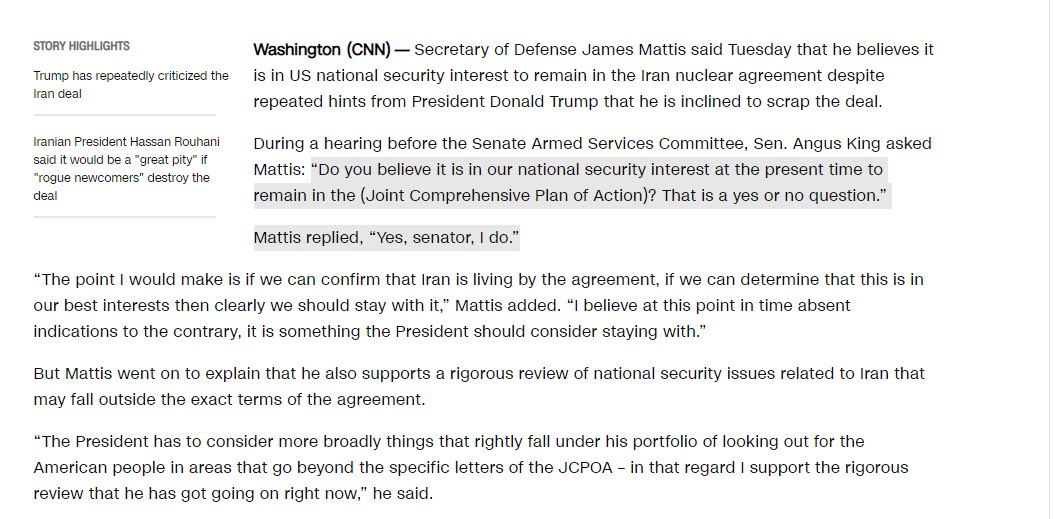
3/ In Autumn 2017, Trump refused to certify the agreement - though still holding off withdrawal.
"We will not continue down a path whose predictable conclusion is more violence, more chaos, the very real threat of Iran’s nuclear breakout", he said.
More on that shortly.
"We will not continue down a path whose predictable conclusion is more violence, more chaos, the very real threat of Iran’s nuclear breakout", he said.
More on that shortly.
4/ By May 2018, and despite months of negotiations with the Europeans that culminated in visits by all three E3 leaders arguing in favour of building on the existing deal rather than jettisoning it entirely, Trump withdrew anyway. 
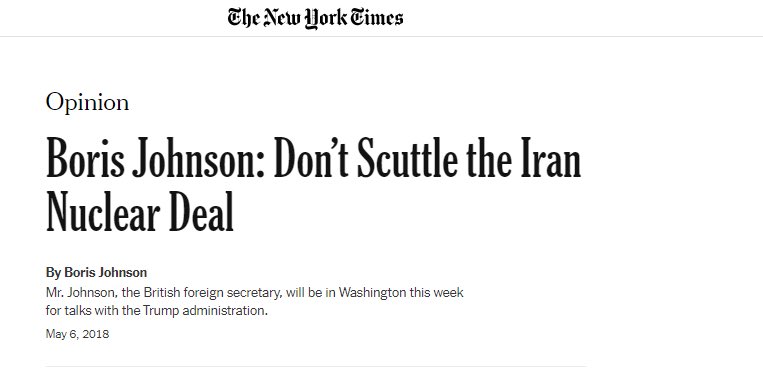
5/ Decision made, the Trump administration proceeded with what came to be known as the "maximum pressure" strategy, primarily associated with restoration of pre-JCPOA sanctions, then their expansion and layering - some 1,500 or so, across every major sector of Iran's economy. 
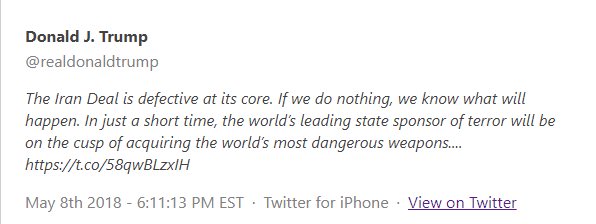
6/ The impact was real. Iran's economy, already blighted by mismanagement and corruption, now saw its trade limited and key exports like oil drop sharply. GDP growth went negative - though by mid-2020 it was stabilizing the tailspin. [@Worldbank] 
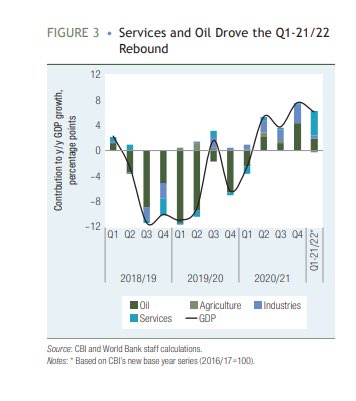
7/ Now, sanctions are a tool, not an ends. And a few weeks after the U.S. withdrawal, the Trump administration laid out its objectives: Finally, a chance for critics of the JCPOA to deliver the "better deal" they insisted was possible.
Here are those (unmet) demands.
Here are those (unmet) demands.
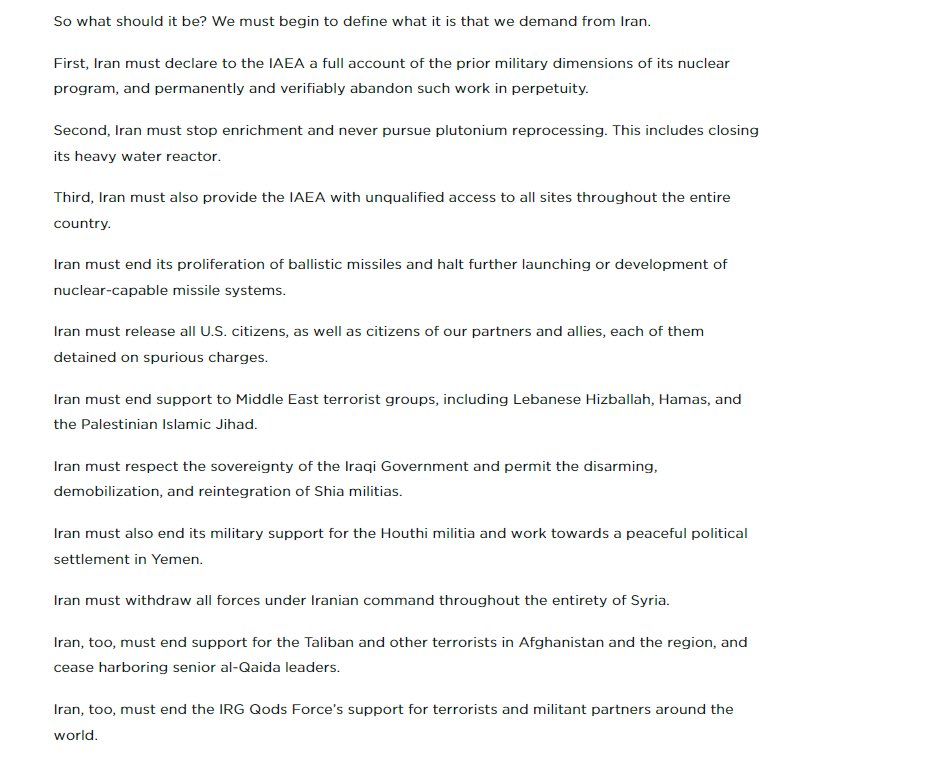
8/ What ensued was predictable: U.S. continued to ratchet up pressure, Iran responded on the nuclear & regional fronts, leading to more pressure, leading to more provocation, leading... well you get the picture. And what off-ramps came were missed.
bit.ly/3N1y8rl
bit.ly/3N1y8rl
9/ Now, let's set aside the fact that not one of these goals were achieved - indeed, in many cases problems were made worse - and focus on the nuclear issue.
For within Trump's big gamble on fixing everything was that one big thing wouldn't change.
It was a very bad call.
For within Trump's big gamble on fixing everything was that one big thing wouldn't change.
It was a very bad call.
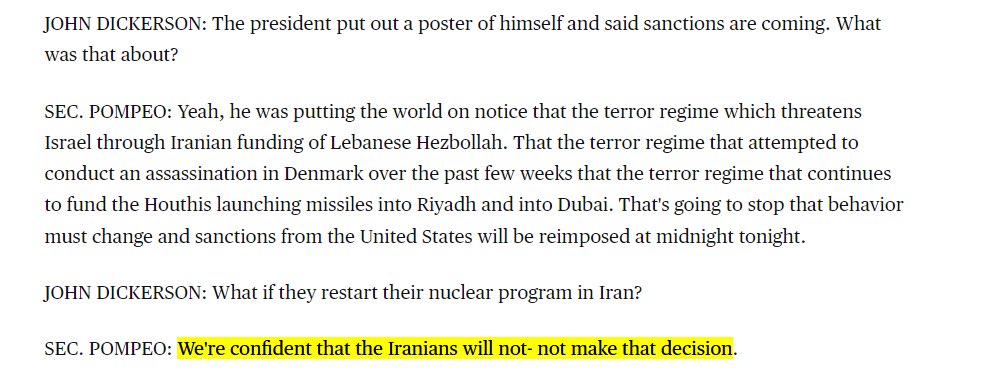
10/ The JCPOA is an arms control agreement. It is not based on naivety about other aspects of Iranian policy where concern is shared by European and regional allies, but on prioritization of those concerns where the shadow of a nuclear crisis clouds everything else.
11/ Some, like Trump's NSA, insist that flaw in the policy was that maximum pressure didn't go far enough; that regime change was and is the only real solution.
If you find yourself digging in a hole you've made, stop complaining about the shovel.
If you find yourself digging in a hole you've made, stop complaining about the shovel.
https://twitter.com/AmbJohnBolton/status/1522322839961059329?cxt=HHwWgoC-1dWjsKAqAAAA
12/ In past year, #ViennaTalks have been aimed at triaging the situation by reviving the nuclear deal as a nuclear deal. The logic of this approach, all the more important after Trump's experiment, is that fixing one very big thing - the non-proliferation concern - is critical. 
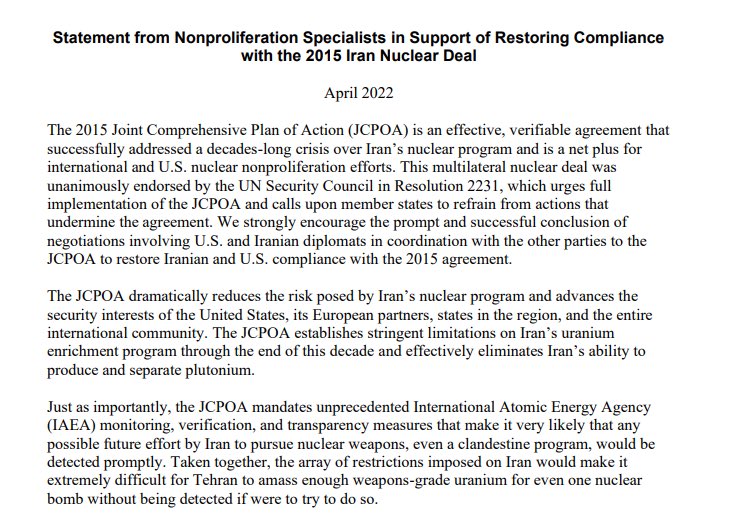
13/ And all the more critical given that over past 3 years, expansion of uranium stockpiles, increase in enrichment rates, deployment of new centrifuges, R&D has put Iran's nuclear program on the cusp of breakout capability [WSJ chart]. 
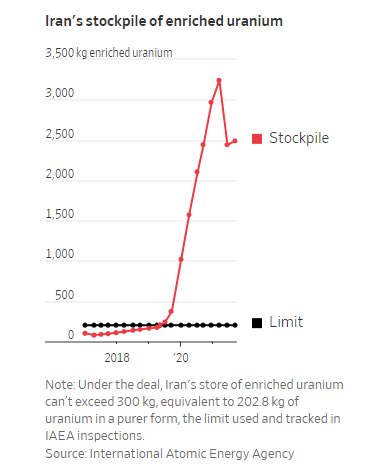
14/ If you want to know why this is concerning, let former Israeli Prime Minister Netanyahu explain: 
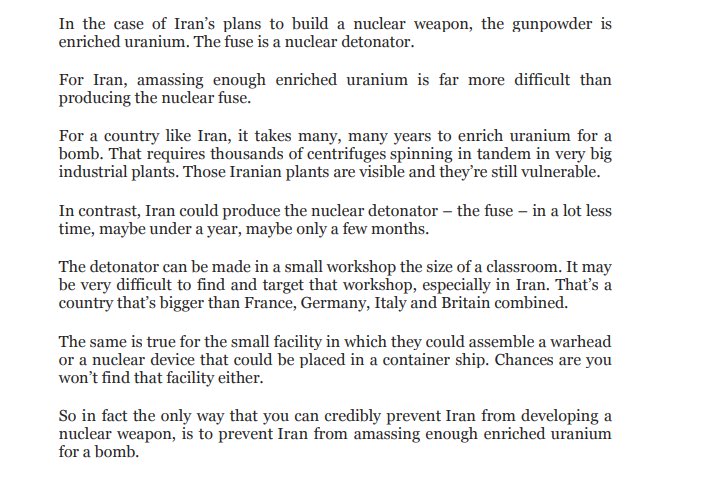
15/ Now, the good news is that a year of diplomatic effort have crafted a framework for fixing Trump's folly. It increases inspections, cuts the stockpiles, reduces enrichment rates, and lengthens breakout time. European allies are certainly ready to roll: 
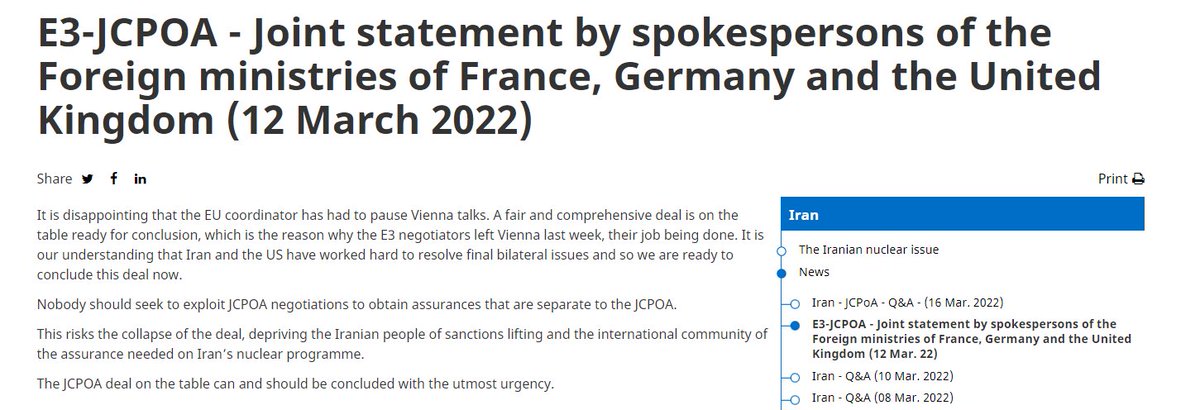
16/16 The magic bullet approach of fixing everything has proven magical thinking. Question now is whether Washington & Tehran can overcome remaining obstacles to undo the damage, and do what should have been obvious: a good deal you build on is better than no deal at all.
• • •
Missing some Tweet in this thread? You can try to
force a refresh


